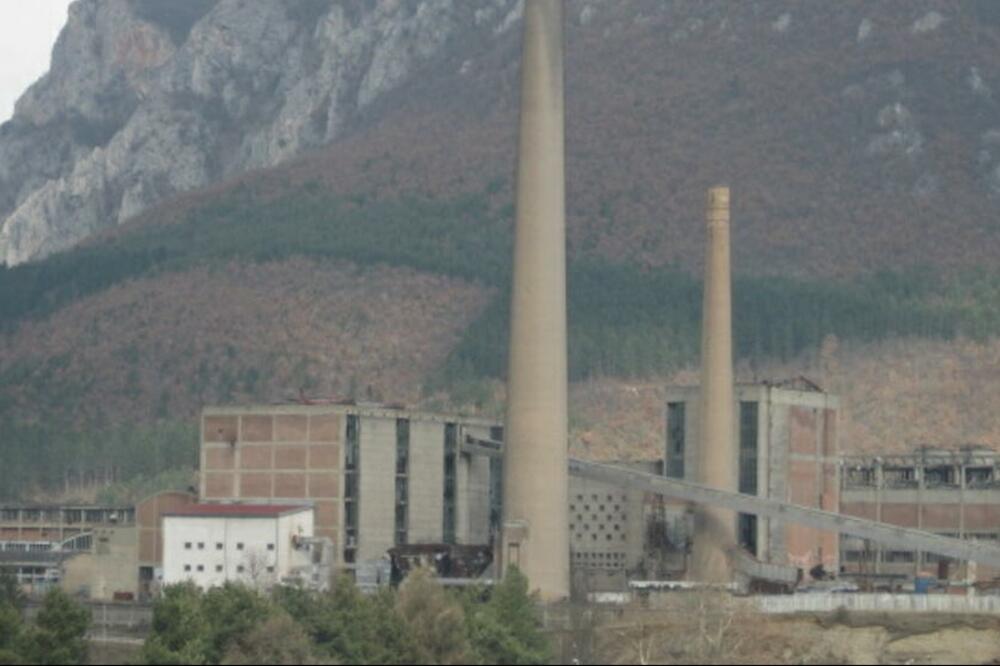The recent shortage of roto paper on the market, which was also felt in Montenegro, bringing into question the printing of Montenegrin newspapers, brought to the fore the question of how the paper factory in Berane was closed and how, according to the claims of the management and employees at the time, Igor Lukšić helped it, first in the role of minister of Finance, and then the Prime Minister.
Many believe that this factory, which at the time of privatization and the beginning of its decline was brought to technological perfection, could have been transformed at least for the production of roto paper for the Montenegrin and regional markets.
The recent crisis on the roto paper market was caused by the interruption of production in the Slovenian paper factory, and in Montenegro it was solved with a lot of problems by importing a certain amount of that type of paper from Bulgaria.
Milić Joksimović, the last director of the Beran paper factory before privatization, believes that the factory could realistically have been saved, but that the sale and privatization represented a political decision.
"It was a political intention. Put it into bankruptcy, sell it and privatize it. And that, as you can see, meant the end of the factory as well," recalls Joksimović.
According to him, the paper factory in Berane was declared bankrupt at the moment when it reached technological perfection.
"There were two paper machines. One for the production of fine papers, up to one hundred and thirty grams. The second machine had a production range of up to three hundred grams of paper, and I think it was the only machine of its kind in the former Yugoslavia. I don't think even Slovenia had that machine," said Joksimović.
He notes with regret that such machines ended up, allegedly, as scrap metal.
"I'm not sure about one, and I know about the other that it allegedly went to Turkey as scrap metal," said Joksimović.
According to reliable information, the machines were sold at the price of scrap metal, but they were transferred to Turkey down to the last screw, and put into operation there without any problems.
How and why the paper factory in Berane was allowed to collapse, and who was in charge of it, is a question that is still being asked today in light of the fact that the factory was modernized to perfection, and Montenegro, like all countries in the region, has problems with the procurement of roto of paper for the needs of daily and periodical press.
The paper factory "Beranka" was sold out of bankruptcy to the Belgrade company "Tigo-impeks" in 2004. The owner of that company, Radoje Gomilanović, a Belgrade businessman of Pljeval origin, allegedly had secured claims of 200 euros from earlier deals with the Beran factory, i.e. with the associated interest of over 250.
The Government of Montenegro also had secured claims in the amount of 400 euros, also with associated interest and with a fiduciary on almost the complete assets of the factory, except for paper machines.
ZOIL "Lovćen" secured its claim of 56 euros with a fiduciary trust over the water intake facility.
However, immediately after purchasing the factory, Gomilanović requested and received a debt rescheduling from the Government and ZOIL.
The government approved the extension of the payment of half of the debt to the owner "in the interest of starting production", and obliged him to invest in investments for the other half. That was during the period when Igor Lukšić was the Minister of Finance in the government of Milo Đukanović.
Lukšić was the Prime Minister of Montenegro at the moment when the factory began to collapse, but he did not lift a finger to stop it.
"Lukšić was the one who should and could have stopped the collapse of the factory, by asking for the funds that were given but not returned. He could have introduced bankruptcy and stopped the further decline of the factory. That was the last chance to save the factory," says Joksimović.
He does not have an answer to the question why Igor Lukšić, in his role as prime minister, did not ask Radoj Gomilanović, who was a small player compared to much bigger businessmen, to return the money that was borrowed. Two hundred thousand to start production, and more to pay back at a later date. She states that Lukšić gave up those Montenegrin taxpayers' money, and nothing can absolve him of that even today.
Interestingly, the former ZOIL Lovćen also gave up debt. Atlasmont Bank was not so grateful to the Belgrade businessman, so it immediately appropriated and sold the factory restaurant. To this day, it is not known what happened to the administrative building on which the same bank also had a mortgage.
When, in the end, the claim that Gomilanović himself had from "Beranka", followed by the government and Lovćen insurance, is taken away, the answer to the question of how, through the giro account of the bankrupt Paper Factory, from the agreed purchase price of close to one million euros, only 250 thousand.
This fact is not without significance. It is in direct contradiction to the sales contract, which in Article 2 provides that if within 45 days the buyer does not pay the amount of EUR 999.573 through the seller's giro account, "the contract will be considered automatically terminated, with consequences as if it had not even been concluded." ".
We should not forget that the bankruptcy was introduced in 2004, when the factory was owned by the Beran and then opposition local government, precisely at the request of Radoj Gomilanović through his company "Tigo-impeks", as one of the secured creditors.
In October of the same year, Gomilanović bought "Beranka" at a public auction. He wandered into Berane by strange roads, made a carom, but made a good profit while doing so, and then left everything to go to ruin.
Whose factory halls are now empty?
The paper factory in Berane has not been working for a number of years and it is not known who now officially owns the factory grounds and empty halls, after all valuable machines and equipment were sold off.
The Montenegrin government at the time was obviously working for the benefit of its own detriment. No one was ever held accountable for that. No one has ever even asked the question why no attempt was made to save this factory, which could certainly still be working today.
It should be remembered that this is not the pulp and paper factory that was the first victim of the so-called anti-bureaucratic revolution, but the factory that was reopened on the remains of that large company in 1997 and which was opened by Milo Đukanović during an election campaign, and under closed by Igor Lukšić due to unexplained circumstances to this day.
Bonus video:





